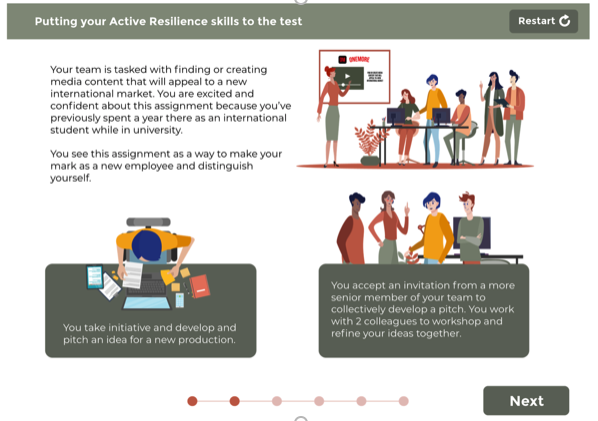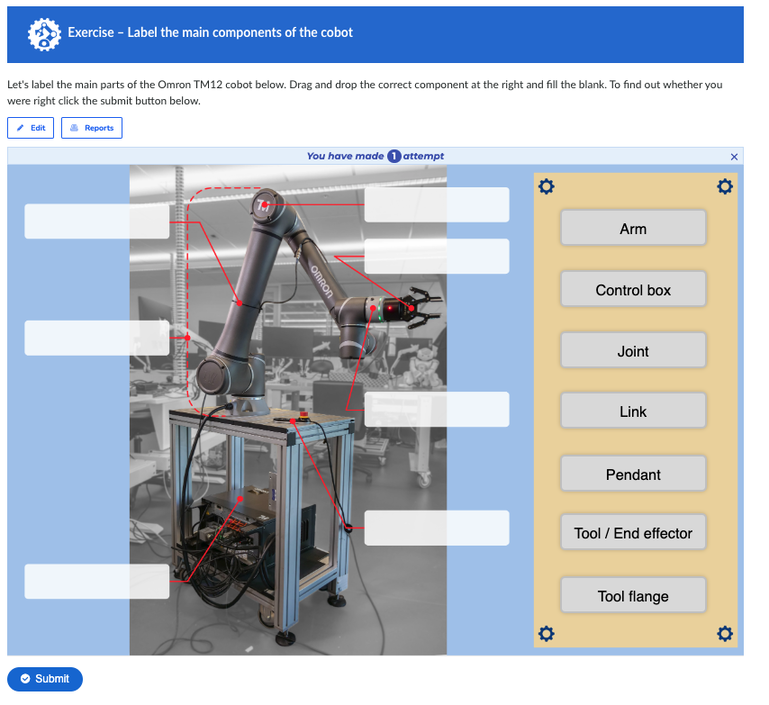The Postgraduate Learning Design Team partner with experts across UTS faculties to co-design innovative online learning experiences. To achieve this, our multidisciplinary design teams work closely in ‘pods’, each with a ‘Senior Learning Designer’. To wrap up the year, we asked each pod to reflect on the partnerships, learning design interventions, and projects of 2022.
Business Pod & Enterprise Learning – Sebastian Krook
The business school added a new course to UTS Online this year: the MBA Online. Three subjects were developed and launched successfully starting in Session 4, and more are on the way for next year. Additionally, a suite of brand-new qualifications in supply chain and operations is also being designed for delivery in 2023.
In enterprise learning, we leveraged our expertise in digital short forms of learning to develop new partnerships across faculties, together with FASS and the Australia Council for the Arts: a new course in digital transformation for artists and arts practitioners, and working with FEIT and GSH and the NSW Government on micro-credentials in robotics and pharmaceutical manufacturing.
FASS & Law Pod – John Vulic
We called the 2CP FASS subject, Active resilience in the workplace, our ’hot potato’, where academic ownership changed several times throughout development! The team member’s resilience truly shone through in the design and development to get this subject over the line.
Collaborating with the PGLD media team we produced an impressive storyline branching scenario in this subject. This was based on a workplace simulation, where students had an opportunity to put their active resilience skills to the test. Students completed the simulation twice, enabling them to reflect on changes in personal choices and strategies.
So far we have had 930 students enrolled across 2 sessions!

FEIT Pod – Kat Fardian
The New Education and Training Model (NETM) is a government funded initiative with Western Parkland City Authority to deliver 100 microcredentials that upskill workers to support Industry growth in Western Sydney. These microcredentials are driven by industry needs and developed in partnership with education providers. Working with Plus UTS, the Graduate School of Health, Faulty of Engineering and IT and industry partners PGLD successfully developed and delivered 5 microcredentials in the last 6 months; Practical foundations of Biology, Microbiology, Organic Chemistry and Inorganic Chemistry (GSH) as well as Basic Programming and use of Collaborative Robots (FEIT). Each microcredential is designed to meet skill gaps identified by employers, building learners’ skills, knowledge and experience in these areas. Students engage in active learning experiences, underpinned by industry relevant content, case studies and assessments.

Health Pod – Thea Werkhoven
The Health pod have had an exciting year working with the Faculty of Health and Graduate School of Health as well as industry partners to produce a wide range of online subjects. Highlights have included launching the new Graduate Diploma in Psychology and the Graduate Diploma in Psychology Advanced, each with subjects launching this year, with a carousel extending into 2023 and beyond. UTS Online subjects have allowed us to work with exceptional health practitioners and educators, whose dedication to teaching and healthcare have inspired the learning design team consistently.
Science – Ariane Wicks
This year our pod wrapped up ‘Maths for Secondary Education’, a PGX program we’ve been working on with the School of Mathematical and Physical Sciences for 2 years.
The final subject saw learning designer Jules Kidston collaborate with (contagiously) passionate maths educator Pauline Kohlhoff. The subject was not only rich in active, social and authentic learning opportunities, it was creatively designed to work on multiple levels. The students (future maths teachers) learned valuable teaching and assessment techniques via a pool of innovative activities and ideas that they could later use in their own classrooms. You’ll find a couple of examples of these below.
Media team
Our PGLD media team have had an exciting and hectic year, working tirelessly across all PGLD projects and products. See some highlights from the year in the video below.
Product Quality Team
This year, PGLD received strategic funding to create the PGLD Quality Framework as part of the UTS 2027 strategy to further the university’s Lifetime of Learning initiative. This practical tool supports the design of effective and engaging digital learning for postgraduate and lifelong learners. The framework contains a set of 42 standards, organised into 4 focus areas covering key components of the learning experience: Subject Overview and Structure, Assessment, Learning Activities, and Learning Content.
Explore the framework on SharePoint, PGLD Quality Framework.
